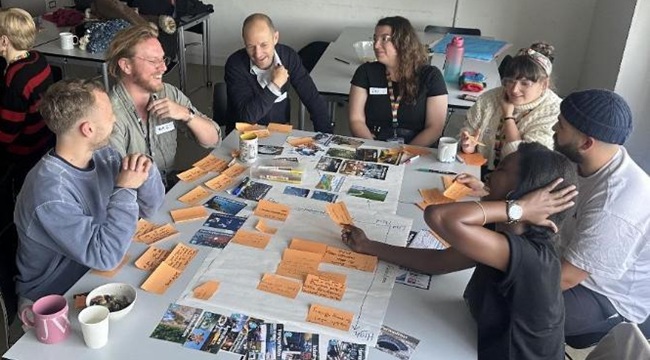Goal 13: Climate action
Take urgent action to combat climate change and its impacts
Our research
The wide-ranging and increasing health dangers of extreme weather for people in the UK were revealed for the first time in September 2024 by Bristol researchers. The team of climate scientists, meteorologists, doctors and epidemiologists found that prolonged exposure to extreme hot and cold temperatures are linked to health factors such as reduced levels of physical activity, disrupted sleep, and increased transmission of infectious diseases, as well as illnesses such as kidney disease and skin cancer.
The University’s Cabot Institute for the Environment conduct a wide range of research into climate change. A study published in November 2024 demonstrated the disproportionate impact of flooding on small island developing states that contribute the least to global climate change, while research shared in August 2024 showed how failing to meet pledges on cutting carbon emissions could lead to flooding increasing by around half by the end of the century.
Research shared in 2023 showed evidence of a “climate hazard flip”, with areas once prone to droughts now facing frequent flooding and vice versa as a result of climate change. The joint study was undertaken by researchers from Bristol and Cardiff University, with partners from WaterAid, and used satellite images and climate data to explore the impact of the climate emergency in a range of geographic locations.
Our students
A Bristol PhD student travelled to the Antarctic to study rare organisms that could help shed light on climate change in early 2024. Emily Broadwell made the two-week journey out to the remote Signy Island to stay with five other researchers at a British Antarctic Survey site. Her research, looking at snow and glacier algae, will help increase understanding of the impact of climate change on these vulnerable regions.
A Climate Fresk workshop session hosted by the School of Education in September 2024 saw 14 PGCE students receive training in providing climate change education. The students, who are Green Apple representatives for the different subject areas of the PGCE courses, were first taken through climate change education themselves, and then taught how to reflect on and share their learnings as facilitators themselves, passing their knowledge on to classrooms of the future. This followed a previous Climate Fresk session for Business School students in October 2023.

Our communities
A team of Bristol researchers joined international experts at the United Nations Climate Change Conference (COP28) in the UAE in November 2023 to share their insights on measuring and progressing global efforts to tackle carbon emissions and climate change. Bristol attendees included Dr Matt Palmer, Associate Professor of Climate Science at the University’s Cabot Institute for the Environment, who has been lead author on the UN’s Intergovernmental Panel on Climate Change (IPCC) report, and who presented a session at the conference on latest observations on climate change.
Ten talented environmentalists have been appointed as new Personal to the Planetary (P2P) Community Fellows by The Brigstow Institute and Cabot Institute for the Environment. The Fellows are drawn from researchers, community groups, the voluntary sector, individuals and artists from a variety of professions and disciplines. Over a period of ten months the Fellows will work as a cohort with community groups and other stakeholders on a deep and sustained engagement around the climate emergency. They will look at how the scale of the planetary crisis can disempower people from feeling they can act and how people usually absent from climate debates can be brought to the fore.
Ourselves
Bristol Medical School become the UK’s first to achieve Carbon Literature Educator (CLE) accreditation for its commitment to tackling climate change in October 2024. The Bronze accreditation was awarded by the UN-recognised Carbon Literacy Project, in recognition of the School’s work embedding climate education and action into its work. The School had already achieved Gold LEAF accreditation for all its labs, and is now aiming to achieve Silver CLE accreditation by expanding its climate education programme to more staff and students.
Our annual review of local Climate Action Plans (CAPs) showed that, as of May 2024, 35 of our 42 Schools and Divisions were actively working on plans, amounting to 1,270 carbon-saving activities in the pipeline, in progress, or completed. The plans have been designed by members of each School and Division to meet local needs and priorities around reducing carbon emissions and improving sustainability on campus. Local teams are supported by our central Sustainability Team, who monitor and advise their work, providing an online climate action planning tool that sets out actions under key themes of buildings, circular economy, transport, and advocacy. New themes were recently added around teaching and learning, and research, to allow for an expanded approach into new areas of action.
